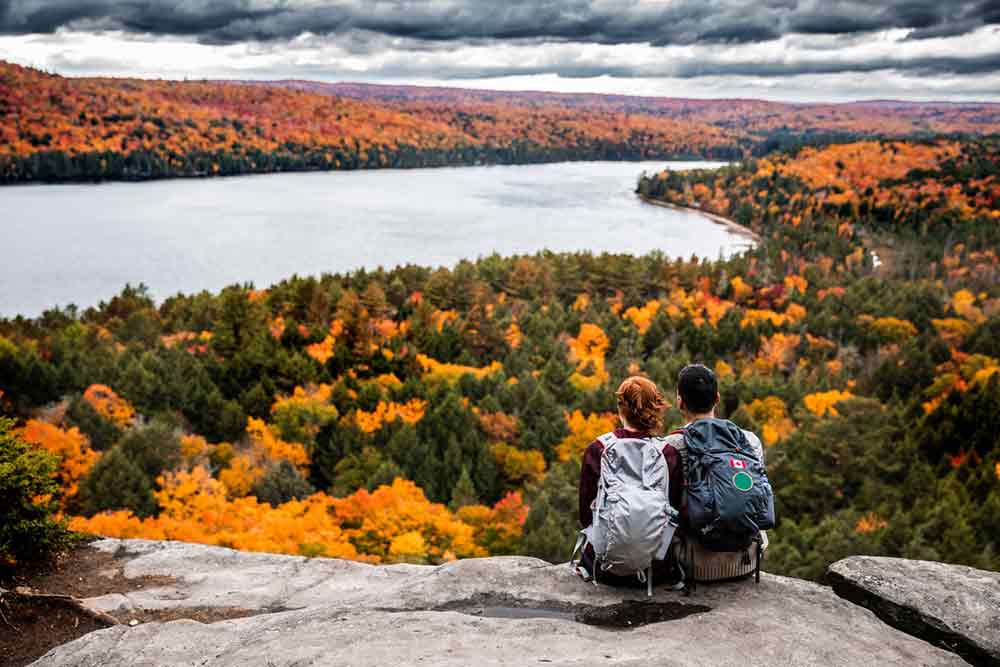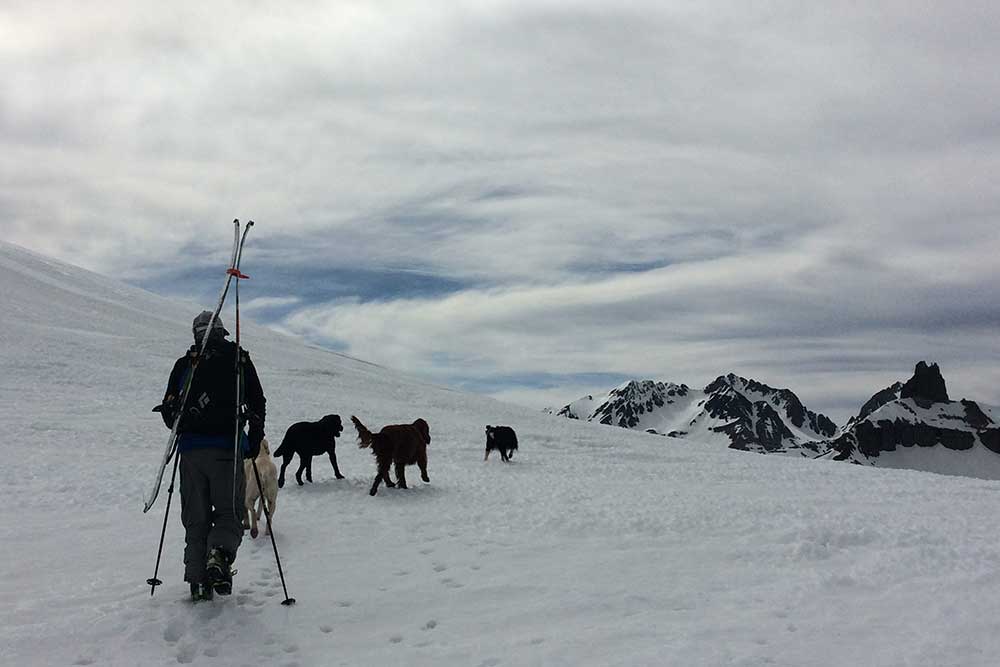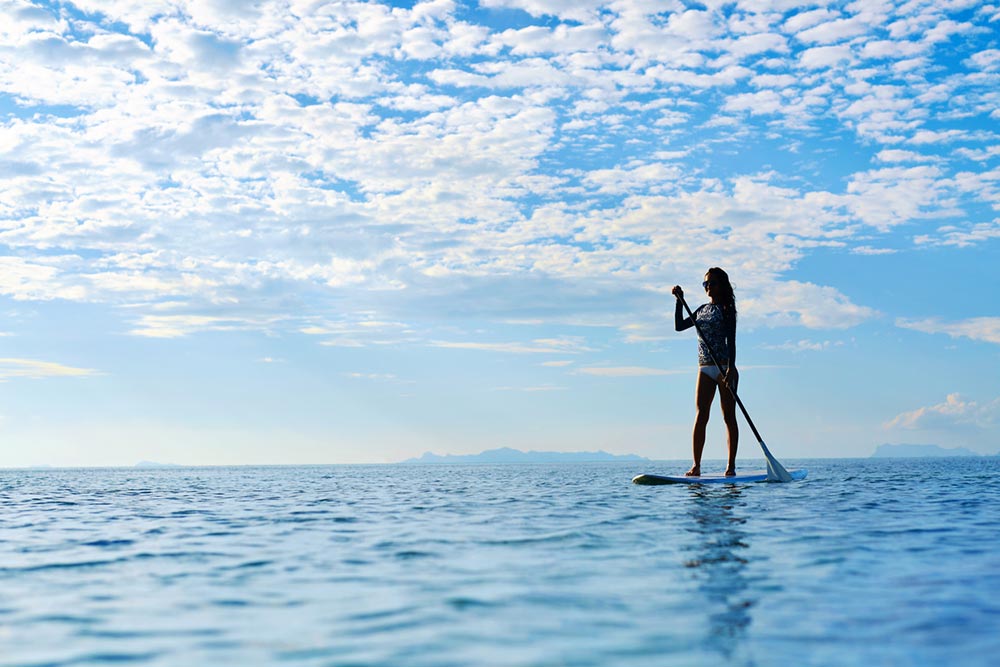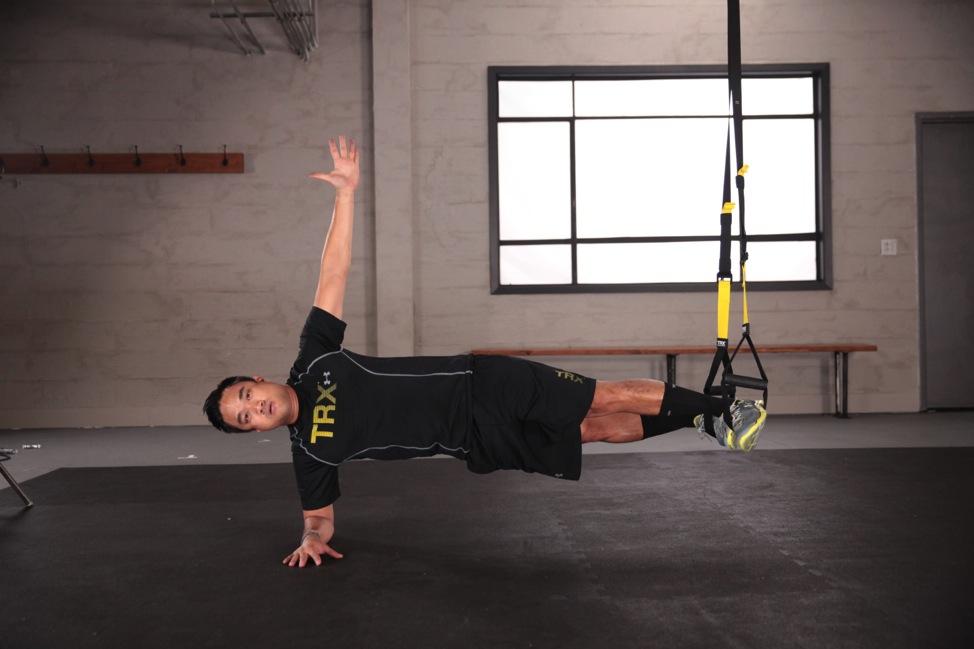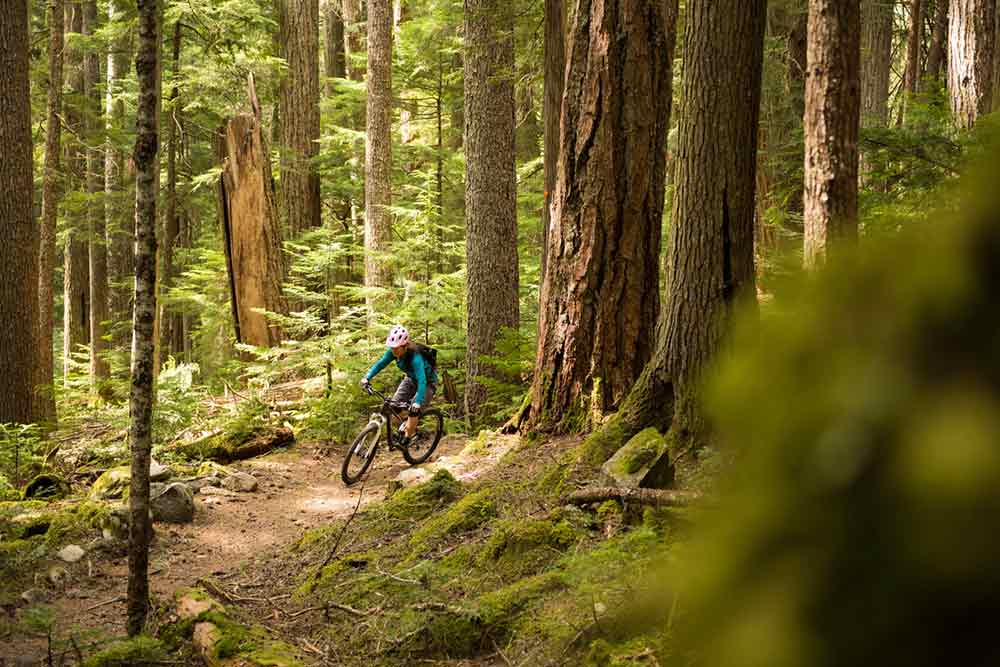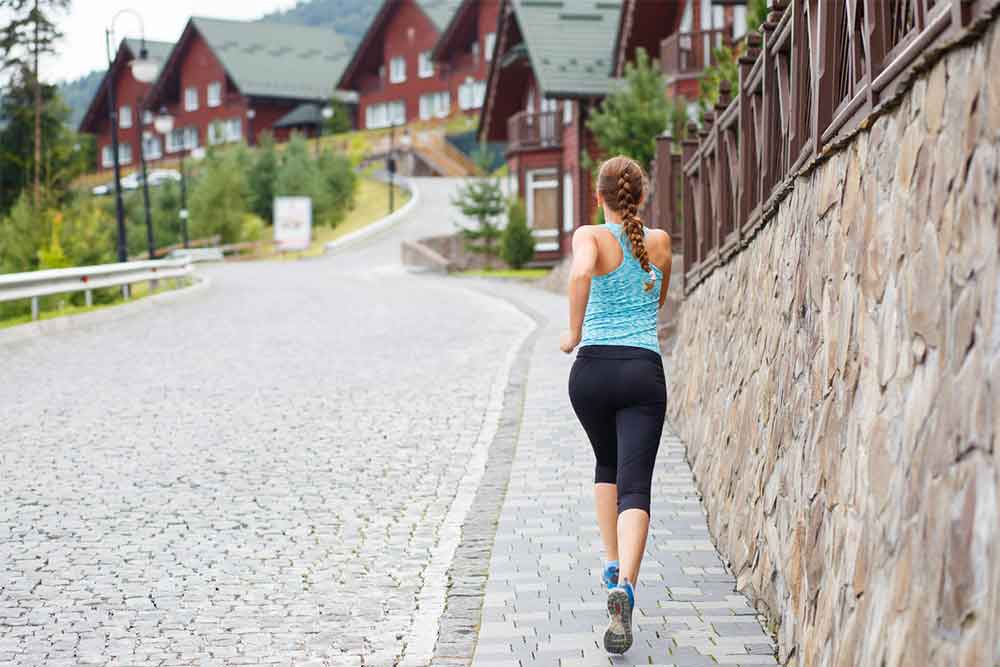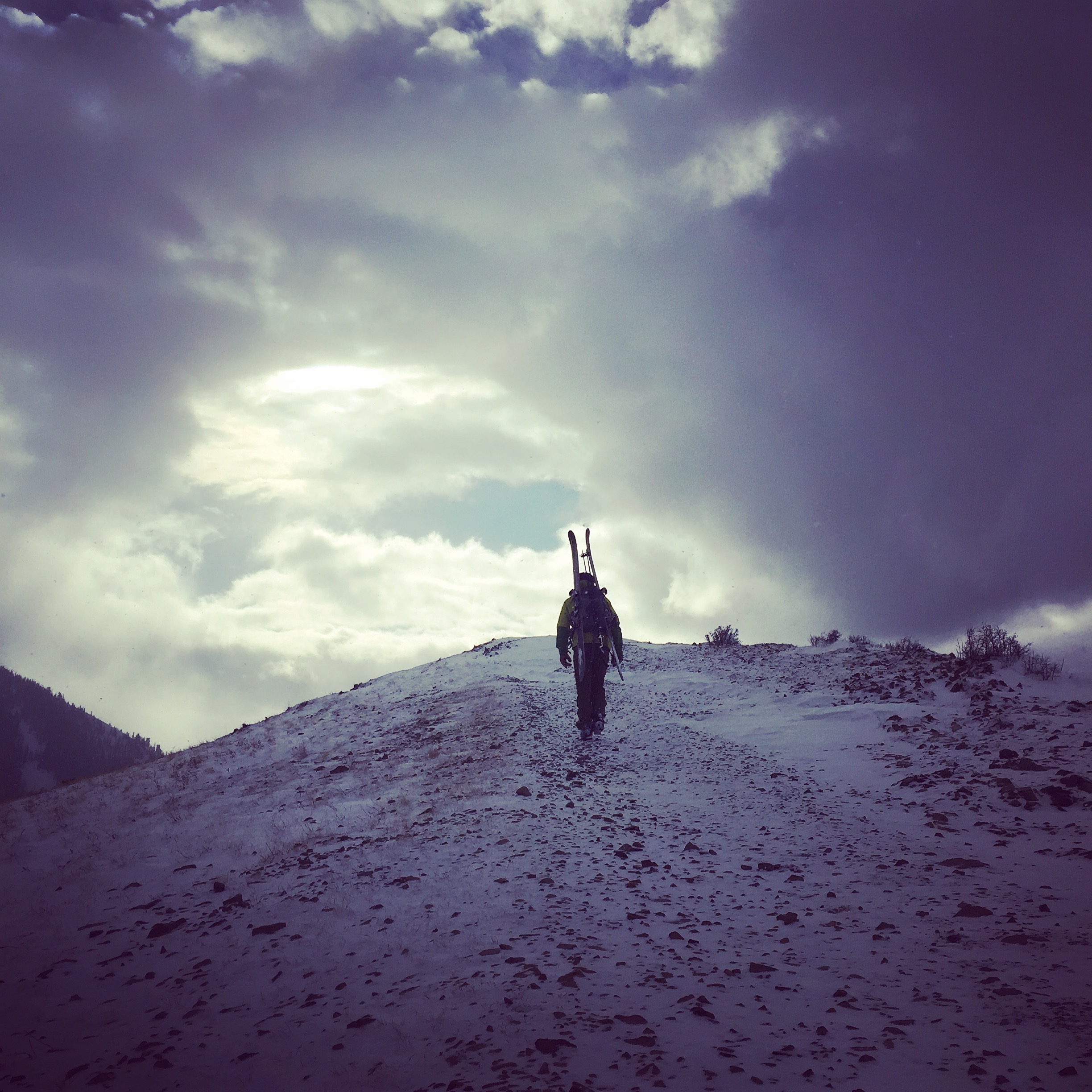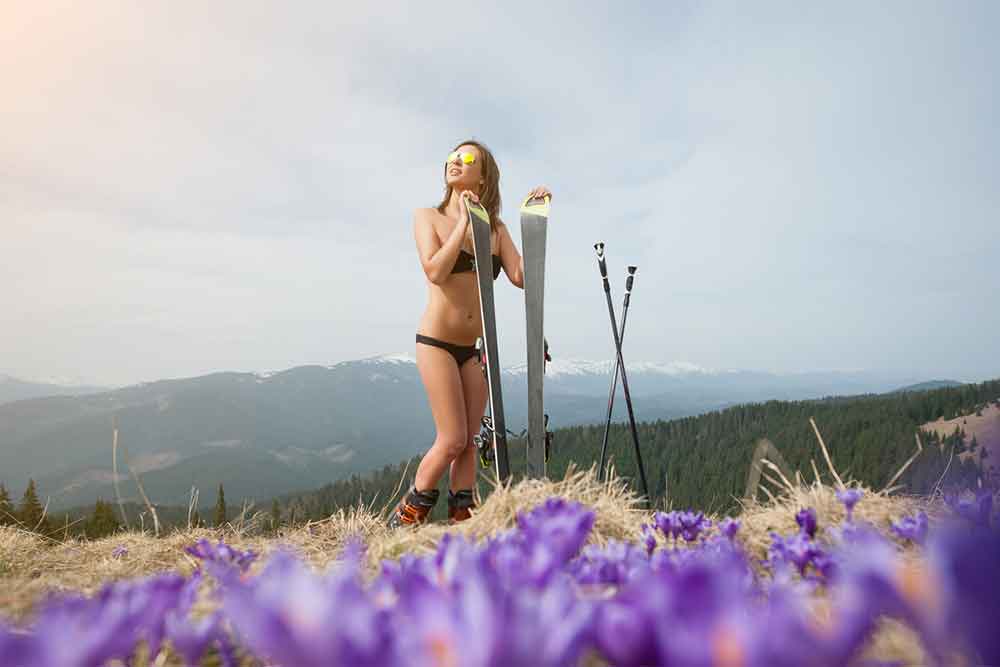Cold ~ Hard ~ Ice Climbing in the San Juans
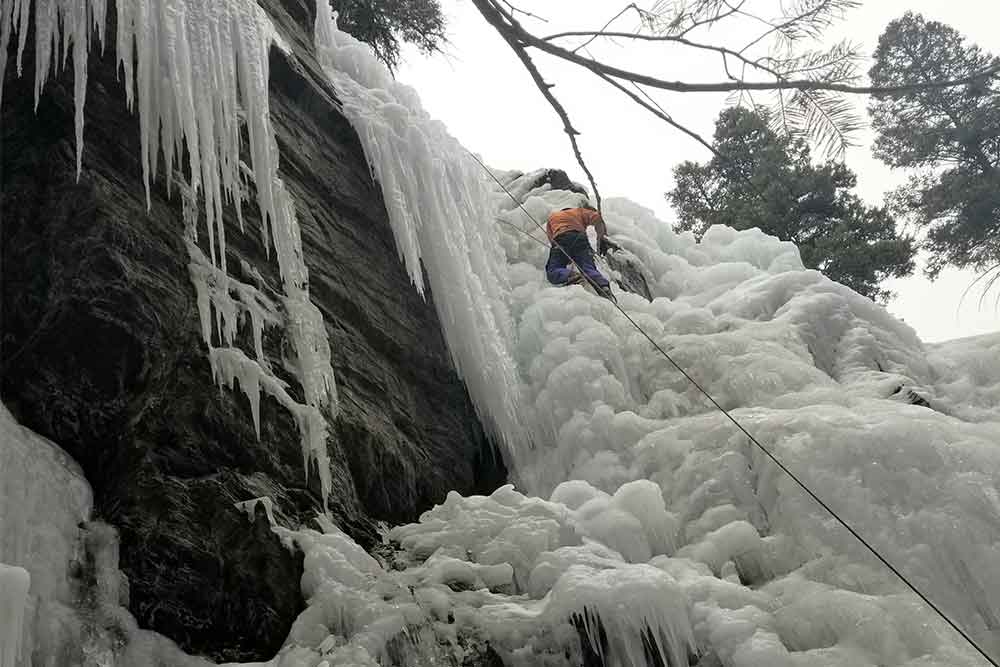
Hank Shell
The sound of tearing fabric reached my ear, as it always does, with the delicacy of a lover’s whisper. It was an unintelligible anomaly, mired as it was in the din of the crowded slot canyon, but impossible to miss. Yes, the krrshhing of fabric. Nothing was spoken, yet all understood.
I looked down. An errant step had buried one of the points on the instep of my right crampon into my left pant leg, effectively hobbling me.
Damn. I love these pants.
I joggled my right foot, hoping to shake the fold of fabric free. Kkkrrsssh. The dime-sized nick blossomed into a tennis ball-sized hole. The crampon relinquished its hold. My tattered pant leg fluttered in the breeze like the flag of some defeated army.
Damn. I loved those pants.
Now, if I’m being honest, those pants weren’t in the best shape. After a couple of seasons of skiing, the legs were scored with a hundred incisions, each the result of a hapless encounter with the edge of a ski. But these incisions were small. Manageable, even. That great cleaving of technical water-repellent flex fabric by the crampon, however, and all of the cleavings thereafter, were irrecoverable. The pants were ruined. My mind raced.
Perhaps I could turn them into shorts. Will I ever find them on sale again? Do they even make these anymore? And SWEET JESUS OH YES I FORGOT I’M CLINGING TO THE SIDE OF A FROZEN WATERFALL WITH METAL CLAWS AND UPSIDE DOWN BEAR TRAPS ON MY FEET.
Or something like that. Now, I’d be remiss not to mention that I was suspended on a rope that, fortuitously enough, ran through a very secure anchor at the top of this man-made frozen waterfall. Even so, such realities wield a certain gravity that cannot be denied, all safety measures and best practices notwithstanding.
Related Article: Clippin’ bolts – Sport Climbing in Colorado
Aside from the pants, my first ice climbing in the San Juans foray was going swimmingly. It was the day after Christmas, and a friend/badass ice climber had, in some symbolic act of stoicism and/or self-flagellation, decided to show me the ropes. Ha! Anyway, lucky for us, there’s this really cool town in Colorado called Ouray (pronounced yoo-ray, or yer-ay), and that town has this really cool thing called the Ouray Ice Park. You know what a climbing gym is, right? Well, this is like an ice-climbing gym. Outside. And it’s free.
The town of Ouray, like many towns in the San Juans, sits at the bottom of a big-assed canyon, an utterly chasmic canyon, really. At the south end of town, where the Million Dollar Highway winds its way up toward the highland encampment of Silverton, the Uncompahgre River winds its way down the bottom of a steep slot canyon. They call it a “gorge,” which I think is a bit gratuitous. Anyway, irrigation lines trace the rim of this canyon, and, given the right conditions i.e. when it’s cold, “ice farmers,” i.e. cool dudes that work at the ice park, let these lines spit forth a torrent of water. The water runs down the canyon walls. It freezes. Then, people climb it, ya dig? The town, in partnership with a local non-profit and various landowners and stakeholders, manages the park.
WHAT IS ICE CLIMBING, ANYWAY?
Remember that revelation I had earlier? The one about frozen waterfalls and upside-down bear traps? Well, that’s what ice climbing is, essentially. The scaling of large ice formations using special equipment. Those claws I was talking about? They’re called ice tools. You’d probably call them ice axes, which is essentially correct, an ice tool just being a very baleful-looking ice axe. Those upside down bear traps? Yea, you’ve probably gathered by now that those are called crampons. I hope? Happy days. If you want a more technical description of a crampon, I’m going to direct you to Google image search and the keywords “upside-down bear traps,” because NOBODY HAS TIME FOR THAT.
So, ice climbing is like rock climbing, right? Just with ice tools and crampons? Eh, not really. Yes, you are climbing. That’s what I was thinking as we made our way down one of the iron gangways that wind along the canyon rim.
It’s just like rock climbing, right? I’ve seen videos. You just stick the, uh, thingies in the ice. Then you kick the tampon things in and stand up. Then you repeat. Easy peasy. You got this, bro.
Hmmm. Not exactly. It’s a lot different, actually. First of all, this ice stuff? Yea, it breaks … sometimes. And it’s more likely to break in certain places, like where the ice bulges outward. If a frozen waterfall was your mama’s skirt, then you’d want to kick your crampons and swing your tools into the troughs of each fold.
Related Article: “Creekin’” – An Intro to Crack Climbing
The ice is stronger in the recesses of these vertical channels. If you’re swinging your ice tools like I was, which is to say like the ice owed you money, which is to say not really how you’re supposed to do it, and you hit the ridge or bulge of one of these wavy facades, it’s liable to throw a dinner-plate sized chunk of cold hard reality right in your stupid face.
Yes, I did this. Twice, I think. It was unpleasant. Oh, and by the way, whenever you knock off a piece of ice larger than, say, a baseball, you’re supposed to yell, “ICE.” You know, for safety or whatever. And let ME tell YOU, after you get socked in the face by a big chunk of ice, there are so many other words you would rather yell. And that’s perfectly OK. Just yell them after “ice.”
MOVING ON
So, here are the most important things I learned during one day of ice climbing with someone who’s really good at ice climbing. One. MAKE A TRIANGLE. With your body, I mean. Your ice tools will be moving, more or less, along the same vertical axis. They are the top point of the triangle. Each of your feet makes one of the bottom corners of the triangle. Now, imagine yourself as a triangle. More specifically, as an isosceles triangle, one in which each of the two congruent sides is longer than the base. If you’re really short, maybe it will be more of an equilateral triangle. Scalene? Never. Am I losing you? I am lost.
What I really want you to get from this nonsense is that you should keep your feet on the same horizontal plane and your tools along a plumb line running right in front of your nose. Maintaining that plumb line will keep your arms from getting too spread out on the ice, which will give you the appearance of having just swung face-first into the wall on a large jungle vine. Keeping your feet spread out, more or less, and on the same plane will give you the support you need for those feeble ‘lil arms. Just kidding. Your arms aren’t feeble. They’re like lever-action rifles chambered in .700 Nitro Express. They’re like reticulated pythons. The pistons in a 6.6-liter Duramax diesel. Don’t ever let anyone tell you otherwise.
Two. Hump the ice. I said, HUMP THE ICE. ICE HUMP. DO IT. So, what I mean by this IS: keep your hips close to the wall. The wall of ice. It’s a sensual dance, this ice climbing. Keep your partner close.
Three. Linking it all together. Swing one ice tool into the ice above your head. Step your feet up, evenly. Step them up high, so your knees are pretty bent. Now, stand up on your feet, and swing your other tool into the ice above your first. Set your feet. Swing. Set your feet. That’s the most basic iteration. The more you ice climb, the more adept you’ll grow at “reading the ice,” and your game will get a little more ornate, more nuanced. Or so I’m told. I still suck at this, remember? But at least I’ve done it. Once. Which is probably one more time than you. And if not, then what the heck are you reading this for??
IF YOU GO
The Ouray Ice Park is open from 8 a.m. to 4 p.m. Monday through Friday, and 7:30 a.m. to 4 p.m. on Saturday and Sunday. You’re probably going to need a guide and some gear. Luckily, you can get that kind of stuff in Ouray. Here’s a list of guide services permitted to operate in the park. I’d recommend San Juan Mountain Guides. Your guide service can get you hooked up with gear rentals, though you can also check out Ouray Mountain Sports, the local gear shop, for rentals.
You Might Like:


